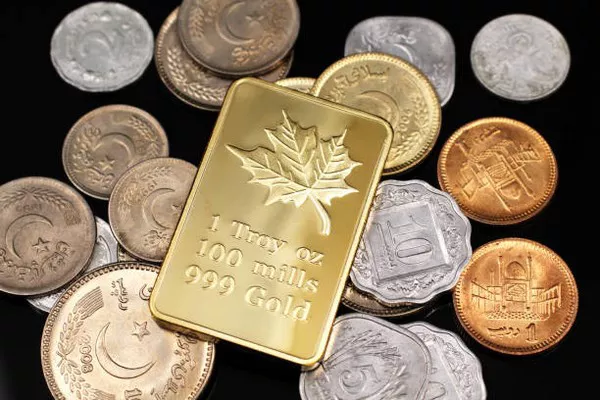Investing in precious metals, particularly silver, is a popular strategy for diversifying assets and protecting wealth. Among the various options for purchasing silver, two choices stand out: silver coins and silver rounds. Both have their advantages and potential drawbacks, but which is the better investment? This article delves into the characteristics, benefits, and considerations of each to help you make an informed decision.
Understanding Silver Coins and Rounds
Before delving into the advantages and disadvantages, it’s crucial to understand what silver coins and rounds are.
Silver Coins: These are official legal tender produced by government mints. They are typically minted with a face value and are made to specific standards. Examples include the American Silver Eagle, Canadian Silver Maple Leaf, and British Silver Britannia. Silver coins are recognized for their purity, authenticity, and aesthetic design.
Silver Rounds: Unlike coins, silver rounds are produced by private mints and do not have a face value. They are often minted in bulk and are primarily used for investment purposes. Rounds can come in various designs and are generally valued based on their silver content rather than their numismatic or collectible value.
Purity and Authenticity
Silver Coins: Government-minted coins are guaranteed by the issuing government to contain a certain amount of pure silver. This guarantee adds a layer of trust and authenticity. For example, the American Silver Eagle contains one troy ounce of .999 fine silver. The government’s backing provides assurance that the coin is genuine and meets purity standards.
Silver Rounds: Private mints also produce high-purity silver rounds, often .999 or .9999 fine silver. While reputable private mints also ensure authenticity and quality, they do not have the official backing of a government, which can sometimes lead to less trust among investors.
Premiums and Cost
Silver Coins: Typically, silver coins come with higher premiums compared to rounds. The premium includes the cost of production, design, and the numismatic value attributed to the coin. For example, the American Silver Eagle often carries a premium over the spot price of silver due to its collectibility and government backing.
Silver Rounds: Silver rounds usually have lower premiums because they are produced in larger quantities and have simpler designs. This can make them a more cost-effective option for investors who are primarily concerned with the silver content rather than collectible value.
Liquidity and Market Demand
Silver Coins: Due to their status as legal tender and their recognizable designs, silver coins generally enjoy higher liquidity. They are more widely accepted and traded, making it easier to sell them in the market. Coins like the Silver Eagle and Silver Maple Leaf are especially popular among investors and collectors alike.
Silver Rounds: While silver rounds are also liquid, they might not command the same premium or market demand as government-minted coins. They are often traded at a lower premium, but their lack of government backing can sometimes make them less desirable to some buyers.
Collectibility and Numismatic Value
Silver Coins: Many silver coins have numismatic value in addition to their intrinsic silver value. Collectors often seek rare or limited-edition coins, which can increase their value over time. Coins with unique designs, historical significance, or limited mintage can appreciate in value independently of the silver price.
Silver Rounds: Generally, silver rounds are less collectible than coins. While some private mints produce limited-edition rounds, most are primarily valued for their silver content. Their design might appeal to specific tastes, but they are unlikely to gain significant numismatic value.
Storage and Handling
Silver Coins: Silver coins are often available in protective packaging, such as capsules or rolls, which can help preserve their condition and value. They can be stored easily in coin holders or display cases, and their official status often makes them more appealing to collectors.
Silver Rounds: Rounds are typically sold in bulk or in rolls and may not come with individual protective packaging. They are generally handled and stored in similar ways to coins, but their lower cost and simpler design mean that individual preservation might not be as critical for investors focused purely on silver content.
Investment Strategy and Purpose
Silver Coins: If your investment strategy includes a focus on numismatic value or if you value the added credibility of government-minted products, silver coins might be the better choice. They offer both intrinsic and collectible value, making them suitable for investors who appreciate a blend of both aspects.
Silver Rounds: For investors who are looking for a more straightforward, cost-effective way to acquire silver, rounds might be preferable. They are ideal for those who want to accumulate silver at a lower premium and are less concerned with collectible aspects.
Tax Considerations
Silver Coins: In some jurisdictions, silver coins may have favorable tax treatments. For instance, in the U.S., silver coins like the American Silver Eagle might be subject to lower capital gains taxes than other forms of silver. However, tax laws can vary, so it is essential to consult a tax professional regarding your specific situation.
Silver Rounds: Rounds are generally treated the same as other forms of bullion for tax purposes. They may not benefit from any special tax treatments that apply to coins, and the tax implications are similar to those for silver bars or other bullion products.
See Also The Value of a Gold Krugerrand Coin
Conclusion
The choice between silver coins and silver rounds ultimately depends on your investment goals, budget, and preferences. Silver coins offer the advantages of government backing, higher collectibility, and potential numismatic value, albeit at a higher premium. Silver rounds, on the other hand, provide a cost-effective way to invest in silver with lower premiums and simpler designs.
Consider what aspects of silver investing are most important to you: the potential for collectible value, the importance of government guarantees, or the desire to minimize premiums. Each option has its merits, and the best choice will align with your personal investment strategy and financial goals.


